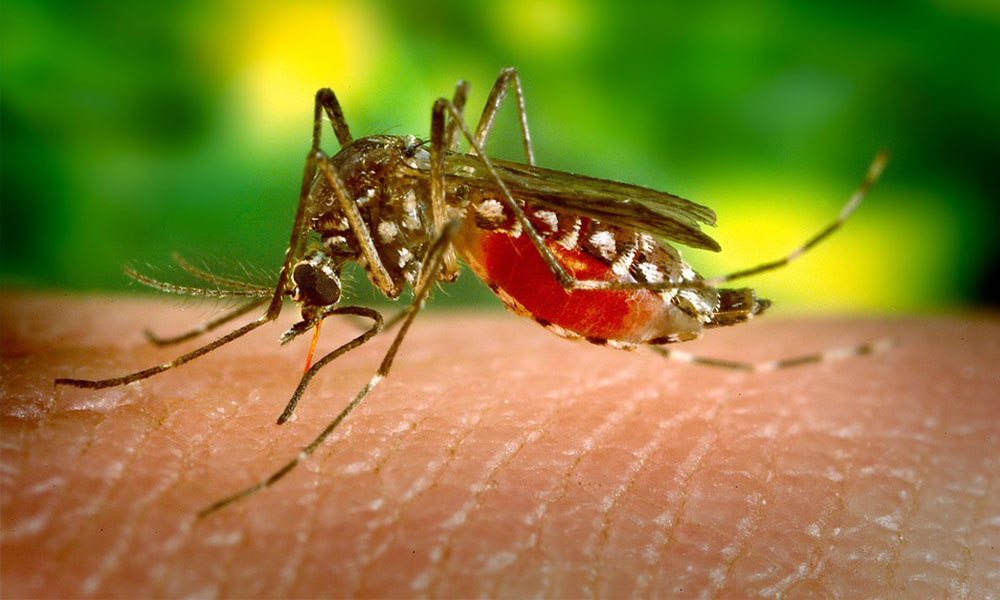Dengue fever is certainly not a new disease especially when you are living in a hot humid tropical country such as Malaysia. The Malaysia Ministry of Health reports a total of 19450 cases in the first 2 months of 2023 alone with 15 deaths in total. The number is expected to rise and a major outbreak is predicted in 2023. Previous years have shown that dengue fever fluctuates throughout the year and always shows the same pattern. This means that the dengue fever case is an all-year round disease. Dengue fever is caused by the dengue virus that is transmitted by the Aedes mosquito. Only female and infected ones are able to spread the dengue virus. A mosquito is said to be infected when it bites a human with dengue virus circulating in the human body.
Surprisingly, 80% of people exposed to dengue virus do not show any symptoms or with a mild one. In other words, patients are often asymptomatic. Common symptoms such as fever that lasts2 to 7 days, headaches especially with pain behind the eyes (retro-orbital headache), muscle pain (myalgia), joint pain (arthralgia) and skin. Any of the symptoms should be regarded as dengue symptoms and need to be checked by a doctor for dengue infection. During the 3rd to 7th days after the first symptom, the dengue symptoms may disappear and it is often to be mistaken as a person healed from the infection. However, this is not certainly the case. In fact, this is the time where it is important to get medical advice as this is known as the critical phase. Critical phase lasts for 24 to 48 hours. This is why it is important to get checked for dengue infection whenever there are any dengue symptoms so that this critical phase can be addressed earlier.
Beside these symptoms, dangerous sign such as sudden severe abdominal pain, vomiting more than 3 times in 24 hours, vomiting blood, presence of blood in stool, bleeding gums or nose, breathlessness or feeling fatigue, these are signs that a person needs to get medical attention immediately as these could be sign of severe dengue. This means the person needs to get to the emergency room or any nearby healthcare facility to get medical care promptly.
It is important to treat dengue fever because the complications can be severe and may even end with death. Complications such as bleeding are the most common one with dengue fever. Beside the nosebleed, bleeding gums or skin rash that are common signs of bleeding, severe bleeding such as internal bleeding of the gastrointestinal tract and brain haemorrhage can definitely lead to life-threatening events. Severe bleeding will lead to shock and coma as the body is unable to keep the blood circulation on optimal level due to blood loss. This will also lead to organ failure and eventually lead to death when it’s not treated immediately.
You may be surprised to know that there is no cure for dengue. There is no medicine available to immediately eliminate the dengue virus from the body. However, there are actually treatments available to help support patients and alleviate symptoms. Common treatment includes fluid replacement therapy and prescription of paracetamol. Paracetamol for patients in hospital may be received via intravenous or injection instead of tablet or liquid. In mild cases, patients are allowed to stay home and make sure to get hydrated optimally by drinking lots of water or isotonic fluid. Patients should always note that even when they are allowed to go home, they should always keep an eye out for signs of dehydration and possible severe dengue. If there are any of the signs, they should get back to their doctor immediately.
It can be concluded that dengue symptoms should not be taken lightly even if it is mild. It is important to get checked for dengue infection to avoid complications. Since there is no cure for dengue fever, it is best to practise “prevention is better than cure”. Taking preventative measures can help reduce the chance for dengue infection and protect those vulnerable such as old people and young children. Below are steps you can take to prevent dengue fever:
1- Prevent aedes mosquitoes from breeding. This can be done by collecting and disposing of all unwanted containers that can hold water such as cans or bottles. Remember to clean plant pot plates and scrub thoroughly to remove Aedes mosquito eggs at least once a week. If you do have water containers such as water reserves in the bathroom, add in larvicides according to the recommended dose. Make sure to change water and scrub the inside of the water container at least once a week.
2- Keeping adult mosquitoes at bay. The best way is to destroy the adult mosquitoes by using aerosol insect repellent. You may want to consider using mosquito coils or electric vapours. Always wear full sleeves clothes and long dresses to minimise contact with the mosquito bites. Use mosquito nets surrounding the bed or place where you are taking naps or night sleep. Use special medicated lotions designated to keep the mosquitoes away. If possible, avoid staying in heavily-populated residential areas since there are high chances for mosquitoes to live within the area especially when it is dirty or polluted.

